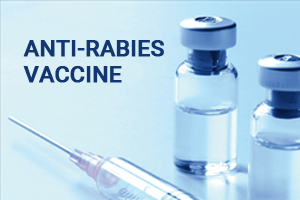- Home
- Medical news & Guidelines
- Anesthesiology
- Cardiology and CTVS
- Critical Care
- Dentistry
- Dermatology
- Diabetes and Endocrinology
- ENT
- Gastroenterology
- Medicine
- Nephrology
- Neurology
- Obstretics-Gynaecology
- Oncology
- Ophthalmology
- Orthopaedics
- Pediatrics-Neonatology
- Psychiatry
- Pulmonology
- Radiology
- Surgery
- Urology
- Laboratory Medicine
- Diet
- Nursing
- Paramedical
- Physiotherapy
- Health news
- Fact Check
- Bone Health Fact Check
- Brain Health Fact Check
- Cancer Related Fact Check
- Child Care Fact Check
- Dental and oral health fact check
- Diabetes and metabolic health fact check
- Diet and Nutrition Fact Check
- Eye and ENT Care Fact Check
- Fitness fact check
- Gut health fact check
- Heart health fact check
- Kidney health fact check
- Medical education fact check
- Men's health fact check
- Respiratory fact check
- Skin and hair care fact check
- Vaccine and Immunization fact check
- Women's health fact check
- AYUSH
- State News
- Andaman and Nicobar Islands
- Andhra Pradesh
- Arunachal Pradesh
- Assam
- Bihar
- Chandigarh
- Chattisgarh
- Dadra and Nagar Haveli
- Daman and Diu
- Delhi
- Goa
- Gujarat
- Haryana
- Himachal Pradesh
- Jammu & Kashmir
- Jharkhand
- Karnataka
- Kerala
- Ladakh
- Lakshadweep
- Madhya Pradesh
- Maharashtra
- Manipur
- Meghalaya
- Mizoram
- Nagaland
- Odisha
- Puducherry
- Punjab
- Rajasthan
- Sikkim
- Tamil Nadu
- Telangana
- Tripura
- Uttar Pradesh
- Uttrakhand
- West Bengal
- Medical Education
- Industry
Gulbarga Institute of Medical Sciences facing acute shortage of anti-rabies vaccine

"There is a shortage of anti-rabies vaccines. There are issues from manufacturing units somewhere around in Tamil Nadu. We are facing this problem for over one month. We have brought it to the notice of our Director and he has discussed the issue with Director of Medical Education in Bangalore which comes under Karnataka government," --Medical Superintendent GIMS hospital
Kalaburagi: Gulbarga Institute of Medical Sciences in Kalaburagi is facing an acute shortage of anti-rabies vaccine due to a shortage in drug supply, an official said on Saturday.
Girish, who brought his daughter for vaccination, was left disappointed after the hospital authorities informed him that no injection was available.
"I brought my daughter to this hospital for injection as she was bitten by a dog. Now, the hospital authorities told me that there is a shortage of injections. For people like us, treatment in a private hospital is expensive. Who will be responsible if something happens to her?" he asked.
When asked about the issue, Medical Superintendent GIMS hospital, Shivakumar accepted that there has been a shortage of vaccines and told ANI that the institute is dependent on Karnataka government for the supply of vaccines.
Read Also:Suspecting rabies exposure, Seek medical help: Study
"There is a shortage of anti-rabies vaccines. There are issues from manufacturing units somewhere around in Tamil Nadu. We are facing this problem for over one month. We have brought it to the notice of our Director and he has discussed the issue with Director of Medical Education in Bangalore which comes under Karnataka government," he said.
Shivakumar continued, "They have asked us to take it from local distributors available in the market. Last time, we managed to buy it from local distributors but now we are facing issues again. We have now contacted the local distributors to buy vaccines. The shortage in our hospital is also due to its high demand."
Rabies is a zoonotic infection (a disease that spreads from animals to humans) that can cause a rare but life-threatening infection of the brain and nervous system in humans. It usually results from a bite, scratch or lick from an infected animal.
The virus is estimated to kill around 59,000 people every year worldwide, most often as a result of a bite from a rabid dog in parts of Africa and Asia.
Rabies does not circulate in wild or domestic animals; although some species of bats can carry rabies-like viruses (European Bat Lyssavirus type 1 and type 2).
As per reports, in India, the vaccine costs around Rs 300 in the market. However, it is provided free of cost in government hospitals.
Providing treatment to the infected person within 10 days of infection is considered an effective way of preventing the ailment from becoming worse.
Medical Dialogues Bureau consists of a team of passionate medical/scientific writers, led by doctors and healthcare researchers. Our team efforts to bring you updated and timely news about the important happenings of the medical and healthcare sector. Our editorial team can be reached at editorial@medicaldialogues.in.


